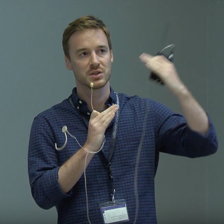A genome-wide association study for shared risk across major psychiatric disorders in a nation-wide birth cohort implicates fetal neurodevelopment as a key mediator
In a GWAS comparing individuals with any psychiatric disorder to those free from all diagnoses, we demonstrate that specific genetic variants can increase the risk for multiple psychiatric outcomes simultaneously and may do so through a disruption of fetal neurodevelopment.

About the study
While it has long been noted that psychiatric disorders with similar symptom profiles seem to co-segregate in families, implying they share genetic causes, recent studies have broadened this perspective. It is now apparent that nearly all psychiatric disorders exhibit some level of genetic overlap, leading to the hypothesis that there could exist “general” genetic susceptibility factors that increase the risk for any and all psychiatric disorders, simultaneously. To date, support for this hypothesis has come mainly from family and twin quantitative genetic studies and rare or copy number variant molecular genetic studies. Common variant studies and investigations into plausible biological substrates that mediate shared risk have been relatively less common.
In this study, we used the complete iPSYCH cohort to undertake a Genome-Wide Association Study (GWAS) that compared the frequency of alleles at ~8,000,000 single nucleotide polymorphic (SNP) variants between 46,008 individuals diagnosed with at least one (of any) registered psychiatric disorders and 19,526 individuals with no registered history of any psychiatric diagnoses. We followed this GWAS with post-hoc bioinformatic functional analyses that integrated the results of our GWAS with published expression and epigenomics data sets to explore possible biological mechanisms that gave rise to our statistical associations.
Our GWAS identified four regions of the genome harboring variants with significant differences in allele frequencies between the broadly-defined case group and controls, three of which had not been previously associated with psychiatric diagnoses. These genetic regions contained a number of individually interesting candidate genes, include PDE1A, which encodes a regulator of voltage gated calcium channels, and PPP1R1C, IGSF11, and SORCS3, which have been implicated in various synaptic functions. Using a more inclusive statistical criterion, we found that, as a group, the most significant variants from the GWAS may affect the regulation of genes with peak brain expression in utero at approximately mid-gestation and that are involved in a number of important neurodevelopmental processes. We also performed a heritability partitioning analysis, which offers a complimentary perspective on the most consistent biological functions that are related to the variants with the strongest statistical signals. This analysis also suggested an important role for gene regulation during fetal neurodevelopment. Importantly, many of the statistical signals we observed in this paper were consistent in multiple previous studies of individual psychiatric diagnoses, adding credence to the notion that general psychiatric susceptibility may be mediated by genetic disruptions to fetal neurodevelopment.
As has become the norm for iPSYCH, this study was undertaken in a highly collaborative manner, featuring key contributions from multiple members of the Institute for Biological Psychiatry, the iPSYCH consortium more broadly, as well as our expanding network of international collaborators. In particular, this work featured contributions from on-going relationships with the Geschwind Lab at UCLA and the new-formed Won Lab at the University of North Carolina, Chapel Hill for functional analyses. It also features an emerging collaboration with the Wray Lab at the University of Queensland on the estimation and interpretation of quantitative genetic parameters in psychiatry.
The article “A genome-wide association study of shared risk across psychiatric disorders implicates gene regulation during fetal neurodevelopment” was published in Nature Neuroscience, January 2019.
Facts about the study
- There is substantial genetic overlap among psychiatric disorders
- We identified four genomic regions harbouring variants that increase the risk for multiple psychiatric outcomes
- Genes that increase risk for multiple psychiatric outcomes simultaneously may do so through a disruption of gene regulation during fetal neurodevelopment
Further information
Andrew Schork, Postdoctoral Bioinformatician, Institute for Biological Psychiatry, Capital Region of Denmark, Email: andrew.schork@regionh.dk
Thomas Werge, Director and Professor, Institute for Biological Psychiatry, Capital Region of Denmark, Email: thomas.werge@regionh.dk
